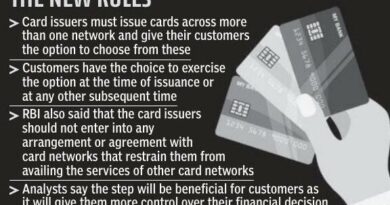USD 70mn in transactions under belt, Kite looks to lead India’s untapped USD 285bn B2B finance industry
Delhi-based fintech startup Kite has recently launched two products for the Indian market: Kite Tab, an expense automation solution with corporate cards, tailored for companies of all sizes; and Kite Grub, a next-generation meal card system.
Kite’s flagship product, Kite Tab, is an expense tracking and reimbursements solution featuring fully-customizable corporate credit and prepaid cards, powered by Mastercard and RuPay. These cards offer full control to employers—according to region, time, merchant category, spend limit, and more. Through Kite Tab’s web interface, clients gain access to features such as automated GST filing and advanced analytics. In addition to this, Kite Tab offers an end-to-end travel solution that passes corporate deals to startups and SMBs through the company’s partnerships with top travel companies.
Bundled with Kite Tab is Mastercard-powered Kite Grub is a physical meal card that can be used at any food outlet that accepts a debit card. Through the tax-free food allowance, Kite Grub can save employees up to INR 12,500 in tax per year, as well as an additional INR 7,500 in exclusive discounts and deals.
Founders Priyanka Kanwar and Prabhtej Singh Bhatia believe that, as long as modern, accessible, financial services are not especially designed for SMBs, those same businesses will continue to face leakages, lost GST savings, little data or insights, and lost tax savings for employees—not to mention mountains of paperwork.
They both have worked personally with a range of Indian businesses across industries and geographies—Priyanka with a degree in Economics from Yale University, and Prabhtej with an established background as a serial entrepreneur. “It’s clear to us that businesses all over India are looking to automate and formalize. Contrary to popular belief, this trend even includes the owners of old-school businesses. They’re looking to automate, they want analytics, and they want full control over how money is spent: the sooner the better,” Priyanka emphasizes.
“Some tools exist out there to solve this problem of automation and formalization, but they aren’t end-to-end, and they certainly aren’t accessible at SMB-friendly price points. Banks are not equipped to guide businesses toward formalization in the way that they need,” continues Prabhtej.
Kite has already partnered with a number of globally-recognized service providers, including Visa, Mastercard and RuPay. Other partners include a host of top financial and B2B institutions, which provide Kite’s clients with access to a range of other solutions. Kite has also entered agreements with Federal Bank, as well as several of the 10 largest banks in India; these relationships solve the needs of established banks through Kite’s modern and accessible financial solutions. These partnerships offer Kite access to over 40 million merchants globally, and provide the opportunity to scale from Day 1.
The co-founders have brought on board a technical team that has previously designed financial products for over 40 countries, 750 million users, and 21 billion transactions. With their expertise, Kite has developed a microservices architecture, which meets global technology and security standards, and can offer financial solutions even more scalable, accessible, and robust than those found at a traditional bank.
Seeing the size of the market—and the future of the Indian economy—rapidly scaling and digitizing in their favor, Kite looks to lead India’s untapped B2B finance industry, with an estimated gross transaction value (GTV) of over USD 285 billion. With USD 70mn in transactions under its belt through its proprietary processor, the bootstrapped, Delhi-based team wants to be at the forefront of India’s fastest-ever formalization drive; it further plans to partner with both businesses and employees in this transition. With Kite Tab and Kite Grub as entry points for its larger mission, Kite is eager to take advantage of its past successes, meaningful partnerships and ambitious mission to reimagine the digital economy in India and beyond.
Profiles of spokespersons
Priyanka Kanwar, Co-founder and CEO of Kite
Priyanka is passionate about helping people from all backgrounds access modern finance. She founded Kite to empower businesses and their employees with innovative and low-cost payments, capital, and financial services. Launched in 2017, Kite’s platform has processed over USD 70 million in transactions and served 150,000 users from 1,200 cities, building financial identities with more than 6 million data points.
The idea for Kite first came to Priyanka at age 17, while shooting a documentary film on the plight of microfinance borrowers in India and beyond. Subsequently, at Yale, as Tobin Research Fellow in the Department of Economics, she continued conducting development research on the sustainable delivery of financial services in Honduras, Mexico, Uganda, Bangladesh, and India. Her thesis was among the first studies of the impact of the Direct Benefit Transfer (DBT) system on service delivery in India.
Prior to founding Kite, Priyanka developed extensive experience at the intersection of finance, technology, and academia. She founded the nonprofit Global Undergraduate Economic Forum (GUEF) with support from the World Economic Forum and the Abraaj Group. She was chairperson of the nonprofit Global Brigades, and has had work stints at HSBC, The Economist, and Accenture. Priyanka graduated magna cum laude with a degree in Economics.
When not firefighting at work, Priyanka loves a cup of hot cocoa with marshmallows on a rainy evening, building game theory simulations, and anything that involves jumping off from ridiculous heights (think airplanes and cliffs). She’s a self-taught photographer and designer and often does pro bono work for non-profits. Priyanka hopes to eventually run a fund and support platform for female entrepreneurs and others from underrepresented communities.
Prabhtej Singh Bhatia, Co-founder and Director of Kite
Since graduating from college in England, Prabhtej has set up three successful businesses from the ground up. While in 2013, he acquired and transformed a new sweet water fishery into one of India’s top three; last year, he launched a range of craft beer called Simba. Over the years, he has forged major partnerships with global brands, including SAB Miller, Kingfisher, and GMR. He was awarded the CII Young Entrepreneur Award last year.
Prabhtej’s interest in digital financial services stems from his own experiences and observations while growing up in a Tier-3 city in India, where banking penetration is low and cash payments, albeit cumbersome, are widely prevalent. At Kite, Prabhtej brings his hands-on experience in business and his deep understanding of India’s financial landscape to build a new form of digital banking that will sustainably include businesses of all sizes in the formal financial economy.
Priyanka & Prabhtej (Founding Story)
As with many startups, Kite started with two people with a vision and a cramped working space. We launched with the belief that Indian finance urgently needed a modern overhaul. As we saw it, the Indian economy ran on old-school tech and outdated thinking, where a bank was confined to its four walls, and millions still lacked access to basic financial opportunities. Businesses and consumers alike didn’t just need better finance solutions, but an entire ecosystem that offered them financial intelligence at their fingertips.
So, we went ahead and built it. Kite’s financial intelligence platform links businesses to a suite of solutions, featuring fully-customizable corporate cards and personalized analytics. Today, businesses of all sizes—from startups to enterprises—are using Kite’s versatile platform to track sales team expenses, turn business incentives cashless, maximize employee tax savings, and much more. Kite’s financial engine has already handled more than 150,000 users and over INR 5 billion in transactions, proving its security, scalability and versatility.
Kite is now expanding its horizons and moving toward enterprise finance. Now at 29 people, we’re building a suite of products that help businesses of all sizes succeed in the new economic landscape. We’ve remained bootstrapped since our founding, wanting to form our base and vision before bringing other stakeholders to the table. As we scale, we will look to bring strategic investors on board who understand the Indian market, and have helped scale businesses successfully in this industry.
Updated company profile/USP of brand
Kite is a New Delhi-based fintech startup founded in 2017. Kite’s mission is to provide modern, secure, and accessible financial products to Indian businesses and their employees. In India’s current financial landscape, small and midsize businesses (SMBs) remain vastly underserved, leaving a more than USD 285bn+ market segment open to digitization and formalization through innovative financial products.
Kite’s flagship product, Kite Tab, is an expense tracking and reimbursements solution featuring fully-customizable corporate credit and prepaid cards, powered by Mastercard and RuPay. These cards offer full control to employers—according to region, time, merchant category, spend limit, and more. Through Kite Tab’s web interface, clients gain access to features such as automated GST filing and advanced analytics. In addition to this, Kite Tab offers an end-to-end travel solution that passes corporate deals to startups and SMBs through the company’s partnerships with top travel companies.
According to Kite’s research, these features are estimated to bring down leakages for small and midsize businesses (SMBs) by up to 90%, reduce approval cycles to one day, and free up liquidity by up to 75%. By eliminating such inefficiencies, the average midsize enterprise could save up to INR 65,28,000 per year, while the Indian economy as a whole could recover over $50 billion.
Bundled with Kite Tab is Mastercard-powered Kite Grub is a physical meal card that can be used at any food outlet that accepts a debit card. Through the tax-free food allowance, Kite Grub can save employees up to INR 12,500 in tax per year, as well as an additional INR 7,500 in exclusive discounts and deals.
The co-founders have brought on board a technical team that has previously designed financial products for over 40 countries, 750 million users, and 21 billion transactions. With their expertise, Kite has developed a microservices architecture, which meets global technology and security standards, and can offer financial solutions even more scalable, accessible, and robust than those found at a traditional bank.
Kite’s financial engine has already handled more than 150,000 users and over INR 5 billion in transactions, proving its security, scalability and versatility. Kite’s clients include the likes of IB Group, Delhi Public School, V2 Retail, Radisson Blu, Mr. Makhana, and several more industry leaders; it looks to shape the SMB landscape through an entire ecosystem of financial products in the years to come.



